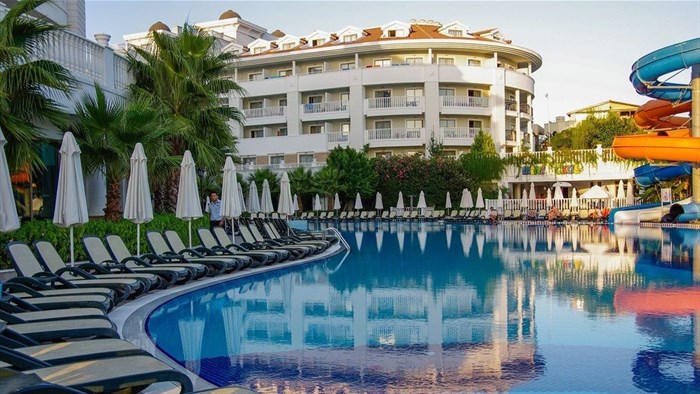Impenetrable boundaries in hotel lobbies, officials in hazmat gear, and voices over loudspeakers warning hotel guests not to leave their rooms.
This isn't the opening scene from a Hollywood movie, but the real-life scenario that coronavirus Covid-19 is causing in hotels across the globe. In China, the United Arab Emirates and Spain, health authorities have ordered lockdowns of entire hotels where individuals tested positive. With no end to the pandemic insight, additional lockdowns are certain.
For hotel owners and operators already facing nosedives in revenue, the corresponding guest costs, whether over a daily, weekly or monthly basis, can be significant. So who’s picking up the tab resulting from these quarantines, and what can hotel owners and operators do now to limit their possible economic exposure later?
Business interruption insurance coverage
Business interruption insurance will be a focus for hotel owners and operators. Policies are normally taken out by owners in combination with standard property damage insurance cover and is required under most hotel management agreements. Such policies typically cover loss of revenue flowing from interruptions to business operations for a specified period of time, and subject to other liability caps.
However, recovery under such policies typically depends upon the insured showing that the business interruption has been caused by physical loss or damage to the insured property. In addition, policies may contain express exclusions in respect of infectious or communicable diseases.
Therefore it’s unlikely that coronavirus COVID-19 would be covered under most standard policies. Coverage extensions which do not require physical damage for business interruption cover to be triggered are available for an additional premium, for example where a local authority or governmental direction results in the closure of or denial of access to the business premises, but these are not commonplace and may be subject to their own limitations and exclusions in respect of infectious diseases.
Other insurance products such as event cancellation policies may be relevant, but are themselves often subject to exclusions in respect of communicable diseases. Liability policies, such as employer’s liability and public liability insurances, will typically only respond if the insured has been negligent, for example in relation to health and safety procedures, and thereby caused an employee or third party to suffer injury or disease.
The reality is that many hotel owners may not be covered for the business consequences of coronavirus Covid-19 under their existing property-related or other policies, and therefore are advised to discuss coverage with their insurance brokers, and before losses snowball. Operators may also wish to discuss with their insurance broker whether other risk transfer options are viable, such as establishing a self-captive, where the insurance provider could front the policy limit and cede the risk to a protected cell captive. Many insurers are creating products to fill the void.
Government assistance
Industries around the globe are lobbying their local governments to lessen the blow of coronavirus COVID-19 by establishing emergency assistance funds. In Singapore and France, such funds are being combined with property tax rebates and rental waivers to cushion the impact of flagging demand in the tourism sector.
Nonetheless, the pandemic is still in its infancy and because there will be a limit to government assistance, it is important for hotel associations in affected jurisdictions to ensure that quarantined hotels seek priority of payout. It is also recommended for owners and operators to confirm whether government assistance will be proscribed from those carrying business interruption insurance.
Guest responsibility
A harsh reality is that in certain jurisdictions, particularly those lacking strong consumer protection legislation, hotel guests are likely to shoulder responsibility for the costs incurred during quarantines. Practically speaking, however, hotel owners and operators may assume the costs in light of possible reputational fallout from seeking payment from individuals subject to a government-imposed quarantine. Any guest subject to quarantine is advised to check their booking terms, whether booked directly or through an online travel agent and seek clarity on future costs at the advent of any lockdown.
Hotel operator VS owner responsibility
In the absence of insurance coverage, government assistance and pushing payments to hotel guests, costs arising during a quarantine are likely to fall to either the hotel operator or owner. It is unlikely that an operator in a hotel management arrangement would be directly responsible for costs arising from a quarantine. Except to the extent that the operator may provide guarantees regarding the hotel’s performance, costs related to hotel operations are typically the responsibility of the owner.
Rather, a hotel management agreement should allow for the costs arising from a quarantine, including cancellations, to constitute operating expenses, and to be incurred even if not budgeted. Hotel management agreements often will include broad language for the hotel operator to incur expenses that the operator deems reasonably or necessary to run the hotel business.
Elsewhere in the management agreement there is likely to be an obligation on the owner to comply with all laws and for the operator to make unbudgeted expenditures in cases of emergency and to comply with legal requirements. A quarantine comes at the directive of the government, and therefore the hotel operator should be within its contractual rights to incur costs arising from quarantine as operating expenses even if not approved in the annual budget.
From an operator’s perspective, it would be ideal for these costs to be for the account of the owner, rather than as operating expenses of the hotel. However, unless the government directive were to stipulate a legal obligation on hotel owner to shoulder these costs, these costs are unlikely to be for the account of the hotel owner.
Much of the world has shown it is prepared for coronavirus Covid-19, and the hospitality industry is no different. Before being placed under quarantine, hotel owners and operators must understand the legal standing under their hotel management agreements and hedge against the downside risk.



































